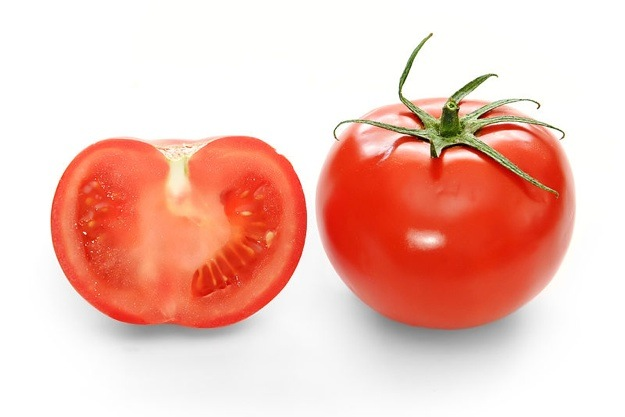
Today in 1893, the tomato legally became a vegetable in the United States.
The Supreme Court of the United States ruled in Nix v. Hedden that a tomato is a vegetable, not a fruit, under the Tariff Act of 1883.
Some background after the jump.
The Tariff Act of 1883 required a tax to be paid on imported vegetables, but not fruit. The case was filed as an action by John Nix, John W. Nix, George W. Nix, and Frank W. Nix against Edward L. Hedden, Collector of the Port of New York, to recover back duties paid under protest. Botanically, a tomato is a fruit because it is a seed-bearing structure growing from the flowering part of a plant.
At the trial the plaintiffs’ counsel, after reading in evidence definitions of the words ‘fruit’ and ‘vegetables’ from Webster’s Dictionary, Worcester’s Dictionary, and the Imperial Dictionary, called two witnesses, who had been for 30 years in the business of selling fruit and vegetables, and asked them, after hearing these definitions, to say whether these words had “any special meaning in trade or commerce, different from those read.”
During testimony, one witness testified that in regard to the dictionary definition:
“[the dictionary] does not classify all things there, but they are correct as far as they go. It does not take all kinds of fruit or vegetables; it takes a portion of them. I think the words ‘fruit’ and ‘vegetable’ have the same meaning in trade today that they had on March 1, 1883. I understand that the term ‘fruit’ is applied in trade only to such plants or parts of plants as contain the seeds. There are more vegetables than those in the enumeration given in Webster’s Dictionary under the term ‘vegetable,’ as ‘cabbage, cauliflower, turnips, potatoes, peas, beans, and the like,’ probably covered by the words ‘and the like.’”
Another witness testified that “I don’t think the term ‘fruit’ or the term ‘vegetables’ had, in March 1883, and prior thereto, any special meaning in trade and commerce in this country different from that which I have read here from the dictionaries.”[2]
Both the plaintiffs’ counsel and the defendant’s counsel made use of the dictionaries. The plaintiffs’ counsel read in evidence from the same dictionaries the definitions of the word tomato, while the defendant’s counsel then read in evidence from Webster’s Dictionary the definitions of the words pea, egg plant, cucumber, squash, and pepper. Countering this, the plaintiff then read in evidence from Webster’s and Worcester’s dictionaries the definitions of potato, turnip, parsnip, cauliflower, cabbage, carrot and bean.
The court unanimously decided in favor of the defense and found that the tomato was classified as a vegetable, based on the ways in which it is used, and the popular perception to this end. Justice Horace Gray, writing the opinion for the Court, stated that:
“The passages cited from the dictionaries define the word ‘fruit’ as the seed of plants, or that part of plants which contains the seed, and especially the juicy, pulpy products of certain plants, covering and containing the seed. These definitions have no tendency to show that tomatoes are ‘fruit,’ as distinguished from ‘vegetables,’ in common speech, or within the meaning of the tariff act.”
Think that defining tomatoes as vegetables by law is crazy? The European Union redefined carrots as fruits in 1999.